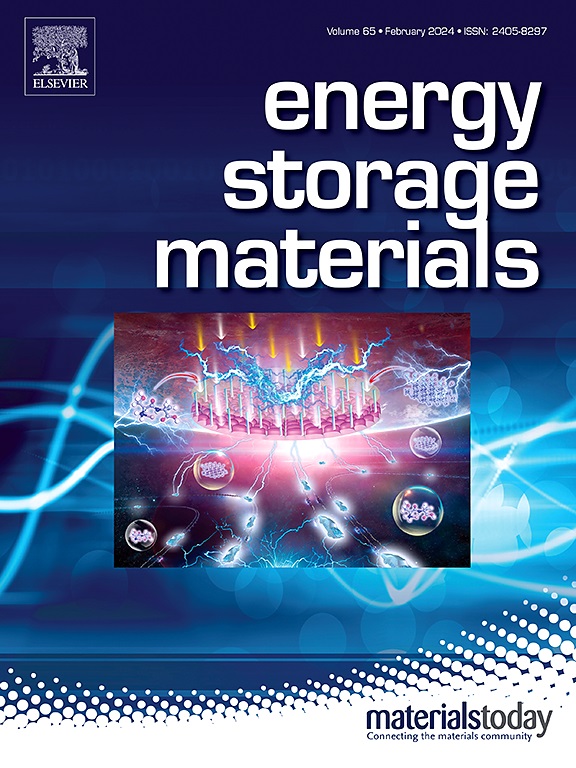Machine learning-accelerated discovery of polyimide derivatives for high-temperature electrostatic energy storage
IF 20.2
1区 材料科学
Q1 CHEMISTRY, PHYSICAL
引用次数: 0
Abstract
Molecular engineering of polyimide (PI) has been an effective method for achieving high-performance polymer dielectrics with both good energy storage capability and enhanced thermal stability. However, the rational design of PI derivatives on demand remains a great challenge due to the complex and nonlinear structure-property relationships. To address this challenge, we developed an integrated framework that combines theoretical calculations, advanced molecular descriptors, and machine learning models to study the effect of molecular structures on five key properties of energy gap (Eg), lowest unoccupied molecular orbital (LUMO), dielectric constant (Dk), fractional free volume (FFV) and glass transition temperature (Tg). By employing Artificial Neural Network (ANN), the framework captured nonlinear dependencies between molecular structures and five properties, achieving the prediction accuracy of R2 > 0.90, far surpassing traditional linear models. Using a multi-objective optimization strategy to screen over 200,000 polyimide derivatives, eight optimal molecules with superior properties (e.g., Eg > 4.0 eV, Tg > 300 °C, and Dk > 3.3) were discovered with great potential for applications in high-temperature electrostatic energy storage. This study provides a robust, data-driven approach for multi-property optimization, bridging theoretical insights with machine learning to accelerate the design of advanced polymer dielectrics.
机器学习加速发现聚酰亚胺衍生物用于高温静电储能
聚酰亚胺(PI)的分子工程是实现高性能聚合物介电材料的有效方法,具有良好的储能能力和增强的热稳定性。然而,由于结构-性能关系的复杂性和非线性,PI衍生物的按需合理设计仍然是一个巨大的挑战。为了应对这一挑战,我们开发了一个综合框架,结合理论计算、先进的分子描述符和机器学习模型,研究分子结构对能隙(Eg)、最低未占据分子轨道(LUMO)、介电常数(Dk)、分数自由体积(FFV)和玻璃化转变温度(Tg)等五个关键性质的影响。该框架利用人工神经网络(ANN)捕获了分子结构与5种性质之间的非线性依赖关系,预测精度达到R2>;0.90,远远超过传统的线性模型。利用多目标优化策略筛选超过20万种聚酰亚胺衍生物,筛选出8种性能优越的最佳分子(如Eg >;4.0 eV, Tg >;300℃,Dk >;3.3)在高温静电储能方面有很大的应用潜力。这项研究为多属性优化提供了一种强大的、数据驱动的方法,将理论见解与机器学习结合起来,加速了先进聚合物电介质的设计。
本文章由计算机程序翻译,如有差异,请以英文原文为准。
求助全文
约1分钟内获得全文
求助全文
来源期刊

Energy Storage Materials
Materials Science-General Materials Science
CiteScore
33.00
自引率
5.90%
发文量
652
审稿时长
27 days
期刊介绍:
Energy Storage Materials is a global interdisciplinary journal dedicated to sharing scientific and technological advancements in materials and devices for advanced energy storage and related energy conversion, such as in metal-O2 batteries. The journal features comprehensive research articles, including full papers and short communications, as well as authoritative feature articles and reviews by leading experts in the field.
Energy Storage Materials covers a wide range of topics, including the synthesis, fabrication, structure, properties, performance, and technological applications of energy storage materials. Additionally, the journal explores strategies, policies, and developments in the field of energy storage materials and devices for sustainable energy.
Published papers are selected based on their scientific and technological significance, their ability to provide valuable new knowledge, and their relevance to the international research community.
 求助内容:
求助内容: 应助结果提醒方式:
应助结果提醒方式:


